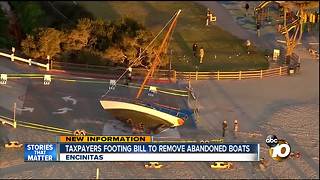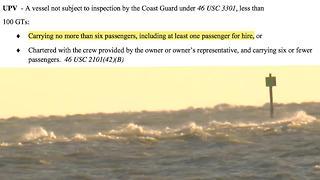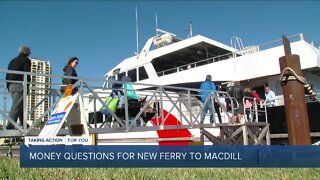Boat Owners On Norfolk Broads Taken To Court Over Tolls
Norfolk Broads Boat Toll Charges: A Contentious Issue Impacting Boating Enthusiasts
Boating enthusiasts flock to Norfolk Broads, a popular destination located in East Anglia, England. However, the 13% raise in cost of boat toll charges has caused quite a stir in the local community, resulting in boat owners being taken to court over toll charges. In this article, we will explore the history of the charges, their current state, and the impact they have on the boating community in the area.
History of Norfolk Broads Boat Tolls
The boat tolls in Norfolk Broads have a long and complex history, dating back to the 19th century. The tolls were first introduced to fund the construction of new waterways and bridges in the area. Since then, the tolls have been used to fund various maintenance and conservation work, as well as to manage the waterways and promote boating tourism in the area. Over the years, the Norfolk Broads toll charges have been increased regularly, ranging from justifications such as climate change.
Current State of Boat Tolls
Currently, boat owners on the Norfolk Broads are required to pay an annual toll charge, which varies depending on the size and type of their vessel. The charges range from £42 for a small rowing boat to £1,316 for a large cruiser. The Broads Authority, which manages the waterways in the area, has been enforcing the toll charges, claiming that they are necessary to fund essential maintenance and conservation work. However, boat owners have argued that the 13% increase in 2023 toll charges is unfair and that the authority has not been transparent about how the funds are being used.
Impact on Boating Community
The boat tolls in the Norfolk Broads have had a significant impact on the local boating community. Many boat owners have expressed frustration and anger over the charges, with some even opting to sell their vessels or take them out of the area altogether. In addition to the financial burden of the toll charges, boat owners have also criticised the lack of facilities and services provided by the Broads Authority, such as the limited number of public moorings, recycling and waste disposal and the shortage of water and electric facilities. Furthermore, the toll charges have also had an impact on the local economy, with some businesses reporting a decline in tourism and trade due to the high charges and negative publicity surrounding the issue.
Possible Solutions
It is clear that there needs to be a balance between the financial needs of the Broads Authority and the concerns of the local boating community. Some possible solutions could be to increase the transparency and accountability of the Broads Authority, ensuring that boat owners have a clearer understanding of how their money is being used. In addition, the Broads Authority could work to improve the facilities and services provided to boat owners, such as increasing the number of moorings. This could help to alleviate some of the frustrations and concerns of the local boating community.
Conclusion
In conclusion, the issue of boat toll charges in Norfolk Broads is a complex and contentious one, with arguments on both sides of the debate. However, by working together and finding a balance between the financial needs of the Broads Authority and the concerns of the local boating community, it may be possible to find a way forward that benefits everyone involved. It is essential to increase the transparency and accountability of the Broads Authority and improve the facilities and services provided to boat owners, to ensure that the Norfolk Broads remains a popular destination for boating enthusiasts.
-
 4:55
4:55
Sailing High Seas
7 months agoNavigating the Storm: The Impact of the Cost of Living Crisis on Boating on the Norfolk Broads
258 -
 0:57
0:57
Sailing High Seas
7 months ago13% Increase In Broads Authority Tolls - Have The Rivers Changed For The Better?
6 -
 2:10
2:10
KGTV
6 years agoTaxpayers footing bill to remove abandond boats
3 -
 3:00
3:00
composedlight
1 year agoBoat Wrecks on the River Brue Highbridge Somerset
23 -
 1:58
1:58
WFTS
7 years agoCoast Guard Documents: Charter boat that lost boaters had too many people on board
3 -
 3:18
3:18
WFTS
1 year agoHeather Leigh in Pinellas County | Palm harbor residents are preparing for Ian. Boat owners had to tie their boat looser and longer, so as the water starts to rise the boat can rise with it.
2 -
 14:35
14:35
OzinPictures
3 years agoSailing Our Hood 23 - Ep 1: "We Bought a Boat"
351 -
 1:18
1:18
WFTS
1 year agoHillsborough County Commissioners to address money questions for new ferry to MacDill
-
 0:13
0:13
TeamMarineService
1 year agoWhat Boats Have I Owned???
-
 7:48
7:48
Sailing Britican
2 years agoBoat Safety For Sailing Cruisers - Avoid Disasters (or at least prepare for them!)
180